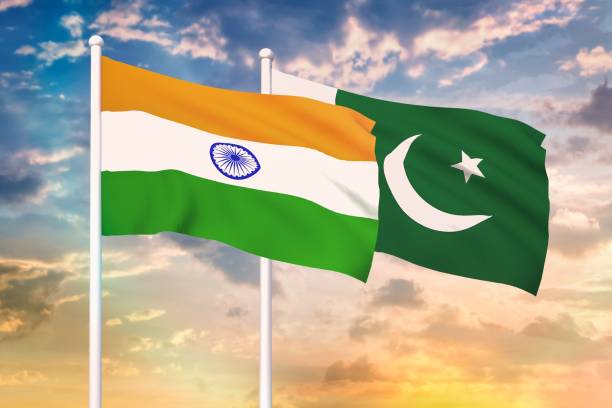MEA Responds to Pakistan’s Jugular Vein Claim with Sharp Rebuttal
In a powerful diplomatic pushback, India on Thursday responded to Pakistan Army Chief General Asim Munir’s controversial statement calling Kashmir the “jugular vein” of Pakistan. Ministry of External Affairs (MEA) spokesperson Randhir Jaiswal countered the claim, firmly reiterating that Jammu and Kashmir is a Union Territory of India and dismissed Pakistan’s assertions as “foreign interference.”
“How can anything foreign be in a jugular vein?” Jaiswal asked pointedly, emphasizing, “This is a Union Territory of India. Its only relationship with Pakistan is the vacation of illegally occupied territories by that country.”
General Munir’s Speech Rekindles Old Rhetoric, Draws Indian Ire
General Asim Munir’s remarks were made during the Overseas Pakistani Convention held in Islamabad on Tuesday. Speaking to the diaspora, Munir revived the decades-old rhetoric, stating, “It was our jugular vein, it will be our jugular vein. We will not forget it. We will not leave our Kashmiri brothers in their heroic struggle.”
The statement has been viewed as an attempt to reinforce nationalist sentiment within Pakistan’s overseas communities, amid internal political instability and mounting international scrutiny over its domestic affairs.
India Reiterates Call for Pakistan to Vacate Occupied Territories
India’s firm stand is consistent with its long-standing position that the entire region of Jammu and Kashmir, including areas under Pakistan’s illegal occupation such as Gilgit-Baltistan and Pakistan-occupied Kashmir (PoK), is an integral part of the country.
The MEA has consistently maintained that Pakistan’s interference in Indian internal matters, including laws passed by its Parliament and policies regarding J&K, holds no legitimacy under international law. The latest exchange once again underlines the deep diplomatic rift between the two nuclear-armed neighbors.
Two-Nation Theory Echoed Amid Global Tensions
General Munir also invoked the “two-nation theory” during his speech, asserting that Pakistan was created because of religious and cultural differences. “Our religions are different, our customs are different, our traditions are different, our thoughts are different, our ambitions are different. That was the foundation of the two-nation theory,” he said.
This reassertion comes at a time when global powers are encouraging regional stability in South Asia, and many consider such rhetoric counterproductive. Munir’s remarks are likely to further strain the already tenuous India-Pakistan relationship.
Kashmir: A Union Territory, Not a Diplomatic Bargaining Chip
Since the abrogation of Article 370 in August 2019, India has maintained that Jammu and Kashmir is an inseparable part of the country, with no room for external commentary or interference. The Union Government has also taken several steps to integrate the region fully, promoting development, security, and democratic participation.
India has frequently criticized Pakistan for attempting to internationalize the Kashmir issue and for sponsoring cross-border terrorism. The Indian government views such provocative statements from Pakistan’s military leadership as not just misleading but also harmful to prospects of peace and dialogue.
The latest war of words between New Delhi and Islamabad underscores the sensitive nature of the Kashmir issue in South Asian geopolitics. India’s response reflects a clear and consistent message Kashmir is a sovereign part of the nation, and Pakistan’s claims, no matter how repeated, hold no weight. As the region moves forward, such diplomatic skirmishes are reminders of the historical complexities that still shape the subcontinent’s future.










